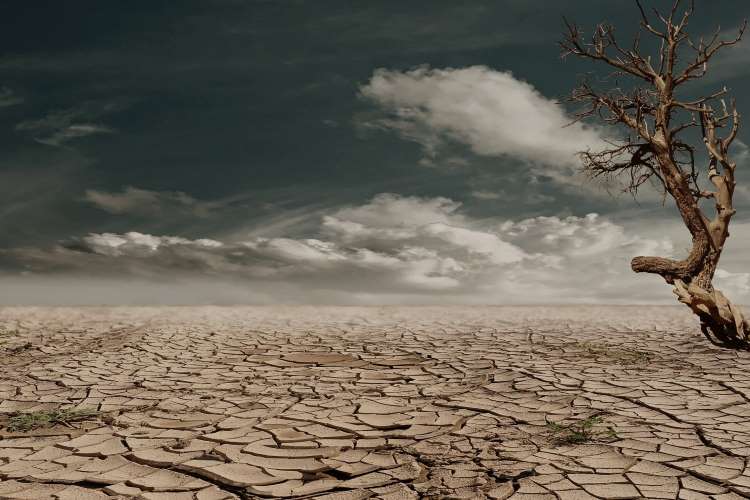
Climate change presents an imminent threat to our planet, demanding urgent collective action to mitigate its dire consequences. The global response to the climate crisis, both in terms of mitigation and adaptation, has been subject to much scrutiny and debate. The inertia of developed nations is a major impediment to climate action. Despite their historical role in greenhouse gas emissions and their capability to drive substantial change, developed nations have, so far, failed to take resolute action, perpetuating a cycle of environmental degradation and social inequity.
While the term tyranny might seem strong, it underscores the vulnerability of the rest of the world. The mismatch between the passionate rhetoric of developed nations on climate action and their actual commitments is disappointing, to say the least.
Developed economies and high consumption patterns make rich nations major contributors to global carbon emissions. Their historical emissions have significantly contributed to the climate crisis, with a disproportionate impact on vulnerable communities in developing countries. Yet, instead of leading the fight against climate change, many developed nations fall short of their commitments under international accords like the Paris Agreement. This inaction has grave consequences for the global community.
READ I Starlink on cusp of India launch, DoT to meet on Sept 20
Climate change and inaction by rich nations
The inaction of developed nations often stems from domestic political and economic considerations. Some governments prioritise short-term economic gains over long-term environmental sustainability, fearing that climate action might hamper competitiveness or growth. This mindset disregards the economic prospects and job creation potential inherent in transitioning to a low-carbon economy. Failing to embrace clean technologies, invest in renewable energy, and reduce fossil fuel reliance, developed nations undermine global efforts to counter climate change and secure the future.
Furthermore, a lack of accountability mechanisms and enforceable targets contributes to this inaction. International agreements set goals and commitments, but they often lack real consequences, allowing nations to make voluntary pledges that can be conveniently ignored or lack ambition. The absence of repercussions for non-compliance enables developed nations to avoid their responsibilities, undermining global climate governance’s credibility. Escaping this “tyranny of inaction” mandates bolstering accountability frameworks, enhancing transparency, and making commitments binding and enforceable.
Another facet of this inaction involves unequal burden-sharing between developed and developing nations. Developed nations, with greater economic resources and technological advancement, hold a moral duty to assist developing countries in climate adaptation and mitigation. However, insufficient financial aid and technology transfer impede developing nations’ ability to address climate change effectively. Developed nations must fulfill their commitments to provide financial aid and technology transfer, enabling developing countries to build resilience and transition toward sustainable development.
Breaking free from developed nations’ inaction necessitates a paradigm shift in global climate governance. It requires a collective endeavor transcending national borders, where developed nations take the lead in implementing ambitious climate actions. Collaborative initiatives and partnerships between developed and developing nations are vital to spur innovation, share knowledge, and mobilise resources for sustainable development. By working together, we can create an equitable and sustainable world where the burdens and benefits of climate action are shared.
READ I US economy: Sticky inflation, strong dollar to test Fed’s balancing act
Impact on Global South
Developed nations’ tendency to prioritise domestic narratives and interests over global responsibilities raises concerns about a different form of colonisation. By disregarding the needs and aspirations of the Global South, developed nations sustain a power dynamic that marginalises and exploits vulnerable regions. This selective engagement with climate actions not only perpetuates historical injustices but also impedes the global efforts necessary to effectively address climate change.
The impacts of climate change extend beyond national borders, affecting communities worldwide. Developing nations, particularly those in the Global South, bear disproportionate vulnerability to climate change’s adverse effects, despite contributing significantly less to global carbon emissions. Rising sea levels, extreme weather events, and agricultural disruptions imperil lives and livelihoods in these regions. It is essential for developed nations to recognise their global role and extend support to the Global South in confronting climate change.
Neglecting the Global South exacerbates existing inequalities and undermines justice and equity principles guiding global climate action. Climate change is a shared challenge necessitating collective responsibility and collaborative solutions. Developed nations must acknowledge their historical emissions’ contribution to the current crisis and take meaningful action to rectify these imbalances. This involves providing financial resources, technology transfer, and capacity-building support to developing nations, helping them adapt to climate change’s impacts and transition toward sustainable development.
Furthermore, developed nations’ disregard for the Global South in climate actions sustains a cycle of dependency, reinforcing colonial-era power dynamics. To break free from this neo-colonial mindset, a more inclusive and equitable approach to climate governance is vital. Developed nations should establish genuine partnerships with developing countries, respecting their sovereignty, and recognising their unique circumstances and contributions. Meaningful participation of developing nations in decision-making processes ensures their voices are heard, and their perspectives shape global climate policies.
Moreover, developed nations must address the climate financing gap impeding developing countries’ ability to undertake climate actions. The commitment to mobilise $100 billion annually in climate finance, as pledged by developed nations, must be fulfilled to support adaptation, mitigation, and capacity-building efforts in the Global South. This financial support should not be construed as mere aid but as reparations for the historical ecological debt owed to developing nations due to climate change’s disproportionate impact.
Addressing the tyranny of developed nations’ inaction is urgent. Their selective engagement and disregard for the Global South in climate actions raise valid concerns about a different kind of colonisation attempt. To overcome this, developed nations must acknowledge their global role, recognise historical responsibilities, and provide meaningful support to the Global South. Collective action, driven by justice, equity, and solidarity, is imperative to combat climate change’s dire effects.
Developed countries have made some progress in meeting their global commitments on climate change, but there is still more work to be done. On the positive side, many developed countries have set ambitious targets for reducing their greenhouse gas emissions. The European Union has committed to reducing its emissions by at least 55% by 2030 and to achieving net-zero emissions by 2050. The United States has also set a target of reducing its emissions by 50-52% by 2030.
Developed countries have also taken some concrete steps to reduce their emissions. For example, many countries have invested in renewable energy sources, such as solar and wind power. They have also implemented policies to promote energy efficiency and reduce reliance on fossil fuels. However, there are still some challenges that need to be addressed. Some developed countries are still reliant on fossil fuels for a significant portion of their energy needs. Additionally, some developed countries are not doing enough to help developing countries to reduce their emissions.
Bold and transformative steps are required to mitigate its impacts and ensure a viable planet for generations to come. Developed nations must recognise their responsibility, acknowledge the consequences of their inaction, and take immediate and resolute measures towards a low-carbon, sustainable future. The world is watching, and history will judge our actions. It is time to break free from the chains of inaction and pave the way towards a greener and more equitable world.
Srinath Sridharan is a strategic counsel with 25 years experience with leading corporates across diverse sectors including automobiles, e-commerce, advertising and financial services. He understands and ideates on intersection of finance, digital, contextual-finance, consumer, mobility, Urban transformation, and ESG. Actively engaged across growth policy conversations and public policy issues.


